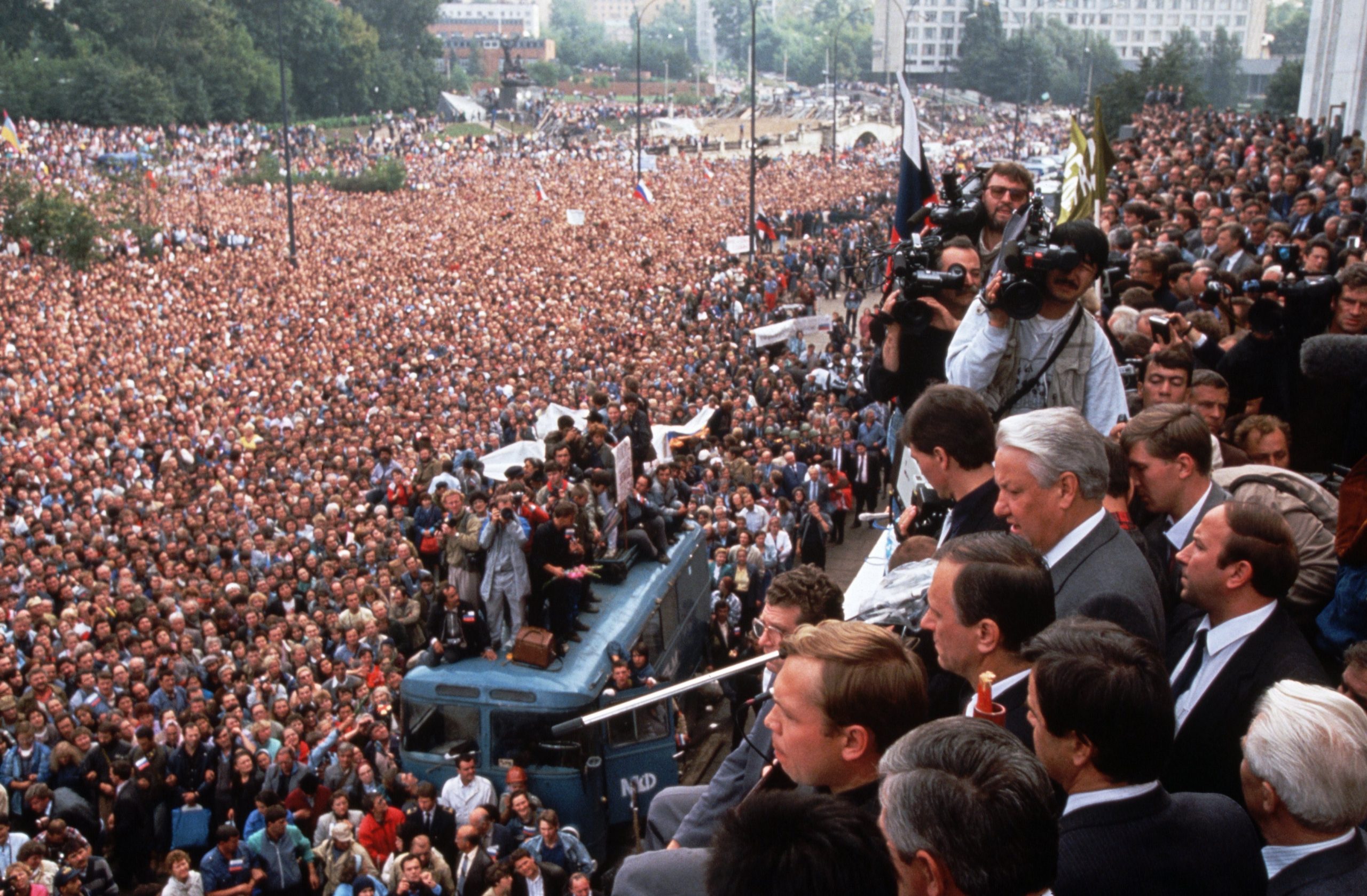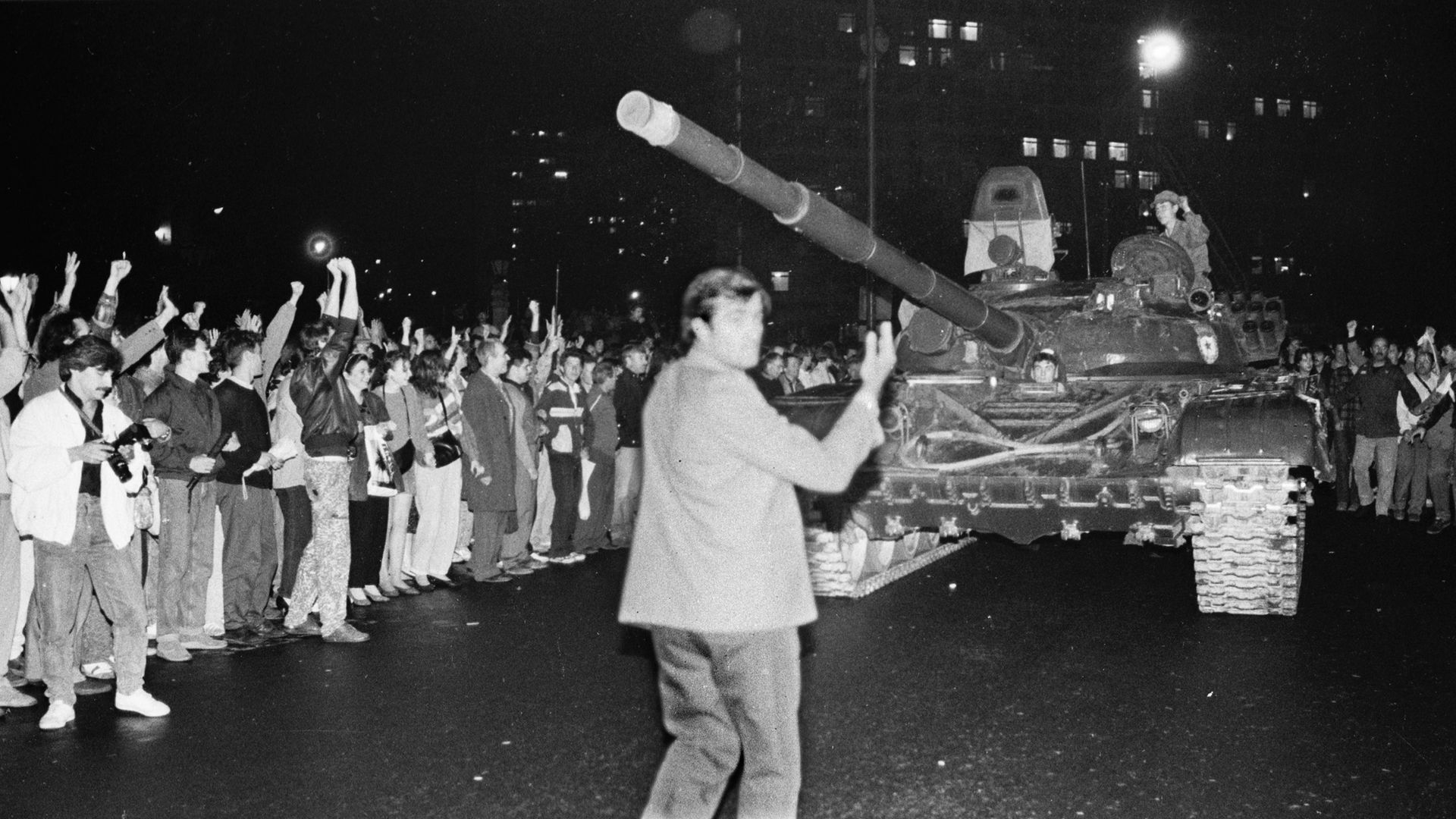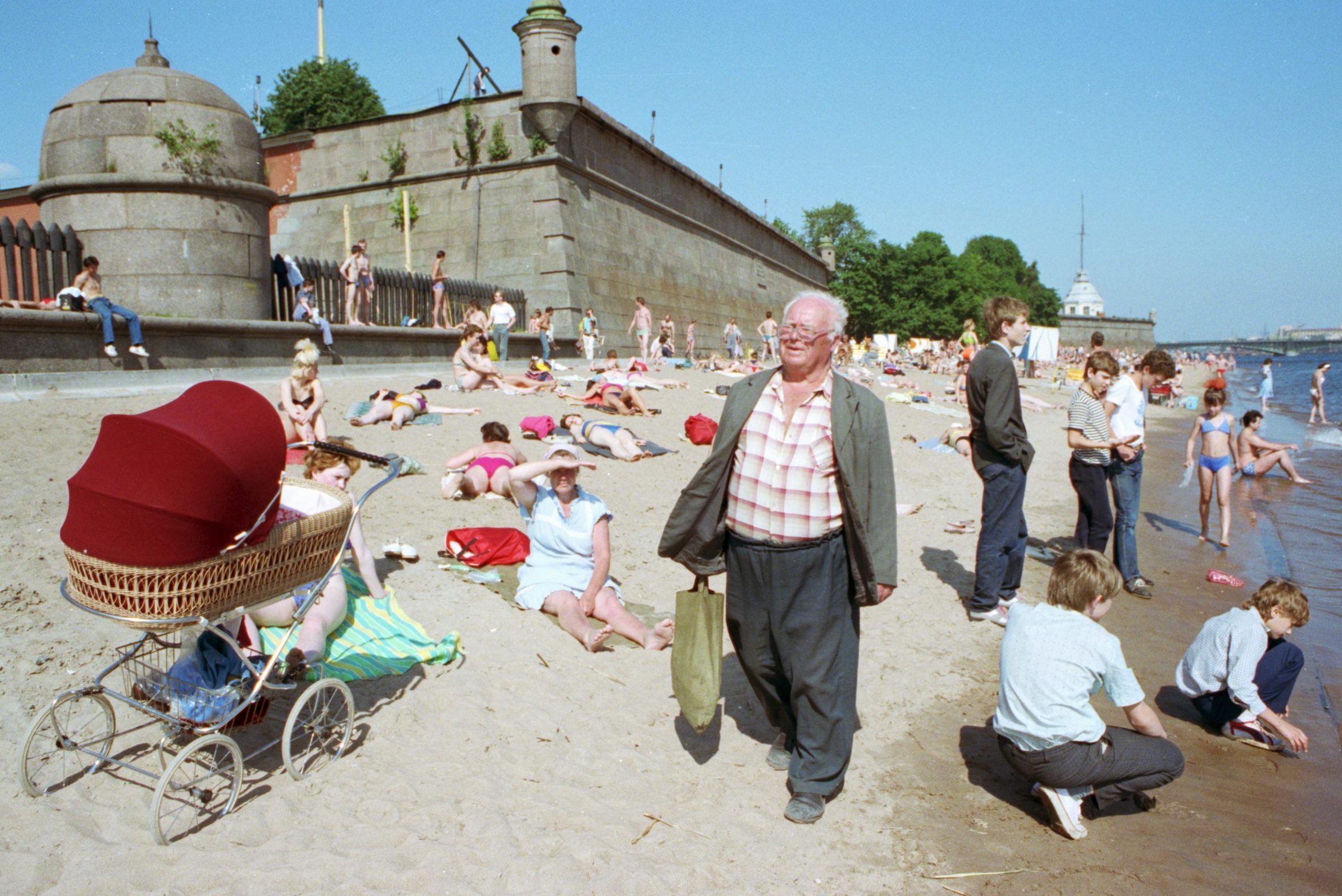The fourth Russian revolution of the 20th century, if we count the ones of 1905 and two of 1917, had a slow start.
In spring 1985, a young-ish Mikhail Gorbachev became general secretary of the Soviet Communist party. His first task was to win over the West, flirting with Thatcher (and receiving her famous approval in return) and smiling with Reagan. Considering the catastrophic state of the Soviet economy and the need to stop the arms race, this was a logical call.
Soon things started to change on the home front. Perestroika (rebuilding) and glasnost (openness) became magical words. Small private businesses opened. Formerly forbidden samizdat novels by Shalamov and Solzhenitsyn were published again. Rock groups no longer needed to perform underground.
The whole country turned into an enormous festival of investigative journalism, revealing the crimes of Stalinist past and producing avant-garde arts, with no little sex, as in the 1988 hit movie Little Vera. Clubs, galleries and fashion shows became all the rage. Western bands flew in, from Sonic Youth to Pink Floyd.
This was a blessed period, when the artistic and human rights community enjoyed the best of two worlds: we’d got rid of the chains of communist censorship, but not yet been targeted by the dictate of capitalist commercialism. The Soviet Union had transformed from the evil empire into the coolest place in the world.
Then came the August coup of 1991.
The power struggle was not with the old Commies, but the one between the indecisive and centrist Gorbachev and the radical, charismatic Boris Yeltsin.
I was there, in and around the White House, the Russian parliament and Yeltsin HQ, for all three days as it was laid siege. I even received a medal for my heroic deeds. As far as I can recall, there were no political banners, no Yeltsin portraits. These people were standing up against the army, to exercise their right to live the life they chose.
It was dangerous, it was fraught. It was also intensely fun. As a veteran of contemporary Russian partying, I can assure you: this was by far the greatest round-the-clock party Moscow has ever seen.
The coup failed as a show because it was dumbly written and dully staged by hopeless producers. They came up against hundreds of thousands of protesters, mainly the young, who blocked tanks and armoured vehicles. In the streets I met almost all my friends – musicians, writers, artists – and I never saw my compatriots so enthused and determined. Above all, it was utterly romantic.
The first two nights were crucial. The weather was warm but drizzly. Thousands sat, stood or walked by, playing guitars and singing, talking about the latest news. There was no internet, so the reports were often contradictory, weird, scary. I remember people declaring: “The tanks are coming from the south-west, they’ll be shooting at the barricades.”
Amazingly for Russia, there was no alcohol. I met a colleague from Finnish TV. He was pessimistic: “What do you think will happen?” He asked, his crew pointing the camera at me. Driven by barricade brotherhood, I replied: “Well, this whole st will last for no more than then days, and we’ll win!” This was a precise forecast, later included in the film called August Revolution.
Then came the ’90s. I played my favourite music on newly-established FM stations, hosted a late-night talk show, wrote a column on city life for the first English-language daily, the Moscow Times – and even launched a Russian edition of Playboy magazine. Yes, we enjoyed our freedom. But it was often excessive and anarchic. Democracy earned itself a bad name, dermokratiya, literally “stocracy”. For many, especially the elderly, it became synonymous with poverty, crime and disorder. The new “unlimited opportunities” opened the gates for corruption that led to today’s kleptocracy.
The rest is… Vladimir Putin. We know the story.
I personally gave up the struggle in the summer of 2014, after the invasion of Ukraine, moving my family to live in neighbouring little Estonia.
Years after the coup, I asked Gorbachev what he had expected from his reforms. “I just wanted to build new modern socialism, a socialism with human face,” he replied. It was not to be.
Those three explosive days in 1991 seemed to squeeze out all energy from the thinking and freedom-loving segment of Russian society. The majority is now tamed; the minority sees itself as righteous and heroic, but it is far too small and marginal to have any influence.
One day we may win, but to do so, we have first to overcome the bitter experience of defeat. The memories of the 30-year-old summer festival should inspire a new generation and convince them not everything that happens in Russia is in vain.
Artemy Troitsky is a music journalist and political blogger



